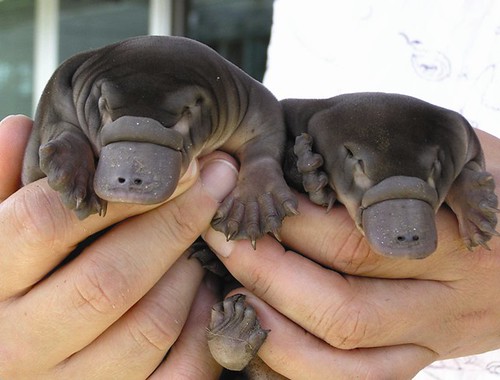The phenomenon of personality changes following organ transplantation is as intriguing as it is complex. With 89.3% of transplant recipients reporting such changes, according to a recent study, the subject has garnered significant attention within the medical and psychological communities. This high percentage, much higher than previous studies, such as the one conducted by Bunzel et al., suggests a prevalence that cannot be ignored, even if volunteer selection bias is a contributing factor. The study’s methodology, which involved soliciting participants through avenues like Facebook and support groups, may have attracted individuals who were more likely to have experienced these changes, thus skewing the results. However, the consistency with prior research indicates that this is a real and noteworthy phenomenon.
The reported changes span a wide spectrum, from shifts in preferences for food, music, and art to profound experiences such as ‘new’ memories and altered cognitive capabilities. While some recipients describe these changes as neutral or even beneficial, others report distressing psychological effects like depression and anxiety. The study’s findings suggest that the occurrence of personality changes is not limited to heart transplant recipients but is also common among those who receive other organs.
The implications of these findings are significant for the medical community. Understanding that a substantial number of patients harbor fears about potential personality changes post-transplant is crucial. Addressing these concerns proactively could alleviate hesitancy surrounding transplant surgeries and improve treatment compliance. Moreover, the psychological well-being of recipients post-transplant is an area that warrants further attention, given the potential impact of personality changes on morbidity and mortality.
The study’s limitations, including its small sample size and reliance on self-reported data, highlight the need for more comprehensive research. Prospective studies that include collateral contacts and utilize reliable psychiatric scales could provide a more objective understanding of the phenomenon. Additionally, exploring the potential for personality trait transfer in living donor transplants could shed light on the mechanisms at play.
Theories attempting to explain the reported personality changes are diverse
Psychological theories focus on the impact of the recipient’s personality and coping mechanisms, while biochemical hypotheses explore the possibility of memory and personality traits being stored and transferred through the donated organ. The concept of cellular memory transfer, involving DNA and RNA, and the role of the intracardiac nervous system, or ‘heart brain’, are particularly fascinating areas of inquiry. The idea that the donor’s electromagnetic field could influence the recipient’s personality is another intriguing hypothesis.
The personal accounts shared by recipients, such as the college professor who experienced dreams and sensations linked to his donor, a police officer, add a deeply human dimension to the study. These anecdotes, while anecdotal, provide compelling narratives that fuel the ongoing debate and curiosity surrounding the subject.
The study confirms the occurrence of personality changes following organ transplantation and expands the conversation to include recipients of non-heart organs. The need for further research is evident, as is the potential for these findings to influence pre- and post-transplant care. As the medical community continues to explore this phenomenon, the stories of those who have undergone such life-altering procedures will remain at the heart of the discourse.
As we delve deeper into the exploration of personality changes post-organ transplant, the accounts and theories surrounding this phenomenon become increasingly fascinating. The study’s findings, which indicate a high percentage of transplant recipients experiencing personality changes, open the door to a myriad of questions about the human psyche and the interconnectedness of our physical and emotional selves.
The personal accounts from recipients provide a rich tapestry of experiences that are as varied as they are profound. For instance, the college professor who received a policeman’s heart and subsequently experienced vivid dreams and sensations is a case that captures the imagination. It’s not just a medical curiosity; it’s a narrative that challenges our understanding of identity and consciousness.
The phenomenon isn’t limited to heart transplants
The study’s revelation that 87.5% of non-heart organ recipients also report personality changes suggests that this is not an organ-specific occurrence. This finding is particularly significant because it broadens the scope of our inquiry into the nature of these changes. Are they purely psychological, a result of the immense relief and stress associated with receiving a life-saving procedure? Or could there be a physiological basis for these experiences?
The psychological theories are compelling. They suggest that the recipient’s personality and coping mechanisms play a crucial role in the post-transplant experience. The idea that personality changes may stem from the recipient’s fantasies about the donor is intriguing. It speaks to the power of the mind and the narratives we construct to make sense of our experiences. Similarly, the use of defense mechanisms to cope with the stress of the transplant procedure could also contribute to changes in personality.
On the biochemical front, the hypothesis that memories and personality traits could be stored in the donated organ and transferred to the recipient is equally captivating. The concept of an ‘engram’—a memory trace of past experiences—being transmitted through exosomes opens up a whole new realm of possibilities. If DNA and RNA can indeed carry memories, what does this say about the nature of consciousness and the boundaries of the self?
The ‘heart brain’ theory is another area that merits attention
The idea that a system of neurons in the heart could store memories and influence personality post-transplant is a radical departure from traditional understandings of memory and personality. If the heart does have its own form of intelligence, as this theory suggests, the implications for medicine, psychology, and philosophy are profound.
The electromagnetic field hypothesis is perhaps the most speculative, yet it cannot be dismissed out of hand. The human body is indeed an electrical entity, and the notion that the donor’s personality could be encoded in the electromagnetic field of their heart is a tantalizing one. While it may sound like science fiction, the principles of electromagnetism are well-established, and their application to this phenomenon deserves further exploration.

Dr. Mitch Liester’s insights add another layer to our understanding. The fact that a significant number of recipients of non-heart organs reported personality changes suggests that these experiences are not merely the result of improved physical health. This raises the question of whether there is something inherent in the act of receiving an organ that prompts a reevaluation of one’s identity and place in the world.
The additional findings shared by Dr. Liester, which were not included in the paper, are particularly revealing. The fact that some participants disclosed more personality changes during personal conversations than they did in the online survey speaks to the complexity of self-reporting in research. It underscores the need for a more nuanced approach to studying this phenomenon, one that takes into account the deeply personal and sometimes ineffable nature of these experiences.
The work of Paul Pearsall provides historical context to the current study. His research into the ways in which heart transplant recipients mirrored their donors’ personalities predates the current study by decades, yet it resonates with the findings presented here. The case of the young boy who named his donor and described shared interests is a poignant example of the potential for personality traits to be transferred post-transplant.
As we consider the implications of these findings, it is clear that we are only scratching the surface of a deeply mysterious and potentially groundbreaking area of study. The stories of transplant recipients, with their rich emotional and psychological dimensions, are not just medical case studies; they are narratives that challenge our understanding of what it means to be human.
The exploration of personality changes following organ transplantation is a journey that takes us to the very heart of the human experience. It is a quest that is as much about the science of medicine as it is about the art of storytelling. As we continue to investigate this phenomenon, we must do so with an open mind and a willingness to embrace the complexities and contradictions that make us who we are. The transplant recipients’ stories are not just anecdotes; they are invitations to expand our understanding of life, identity, and the enduring mystery of the human heart.
Related posts:
Personality Changes Associated with Organ Transplants
Organ transplants may have unexpected consequences: recipients’ tastes for food, sex, and their personality change
Organ Transplants Can Change Personality and Even Sexual Orientation, Scientists Find





